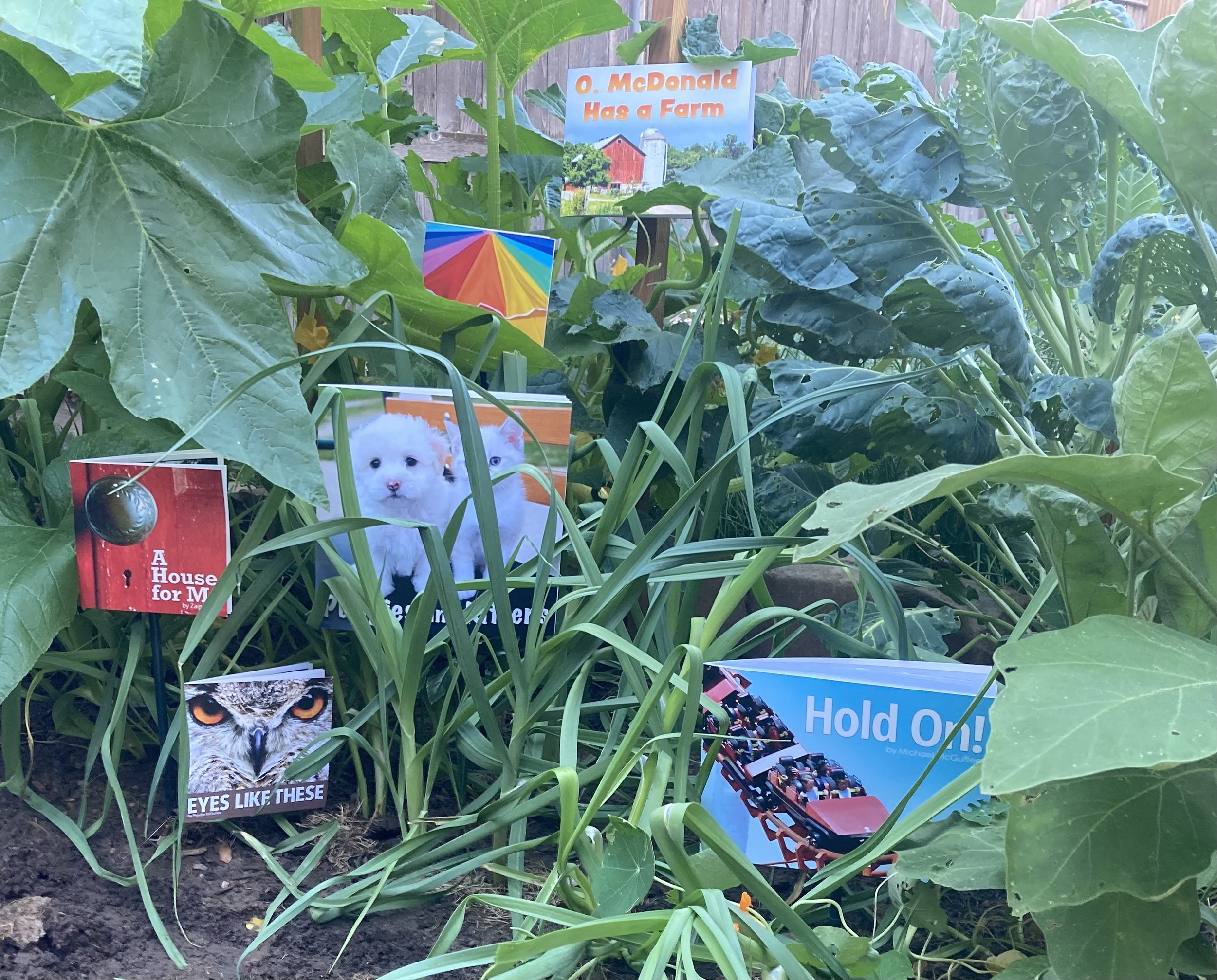How to Grow a Book Garden
By Mark W.F. Condon, Unite for Literacy vice president
Just like you can grow a vegetable garden, you can grow a Book Garden--a place where there’s a reliable stock of compelling books and/or a flow of such books through them. Book Gardens yield a “crop” of books that is continually refreshed.
One way to keep Book Gardens producing good reads is to seek out recommendations from other "gardeners." The diversity of each person’s thriving Book Garden always includes the contributions of other active readers, such as:
Friends’ and neighbors' reading recommendations often are the most powerful. When friends or neighbors mention what they are reading and enjoying, we might ask to borrow the book or magazine, or jot down its title to enjoy later. Friends’ book sharing often spawns lively conversations and can lead to deepened relationships.
Family members who just show up with a book in hand, a current favorite of theirs that made them think of us. The source of their enthusiasm is spawned by familial love and a desire for strengthening family bonds.
Librarians who are the experts when it comes to book recommendations. Knowing us less well, they are likely to suggest surprising topics and authors that can expand tastes and interests.
Teachers who recommend books because it's part of their rewarding jobs. Educators pass along their love of books, admired authors and information about their favorite subjects.
Online book services feature new books or old favorites that are valuable resources for those new to literacy, as well as those with years of reading experience.
Book recommendations become invitations for shared nourishment and enjoyment for minds. Like fresh vegetables, books benefit their consumers, and lead to cultures of reading, strong intellectual roots, and flowering language and creativity.
The presence of Book Gardens may seem like an obscure cornerstone of healthy families or communities, but the evidence is clear: strong literacy activity correlates with a better-educated workforce, higher paying jobs, less poverty, lower crime rates, and increased community and civic engagement. Communities full of Book Gardens and lifelong readers contribute to a higher, healthier quality of life for all citizens.
